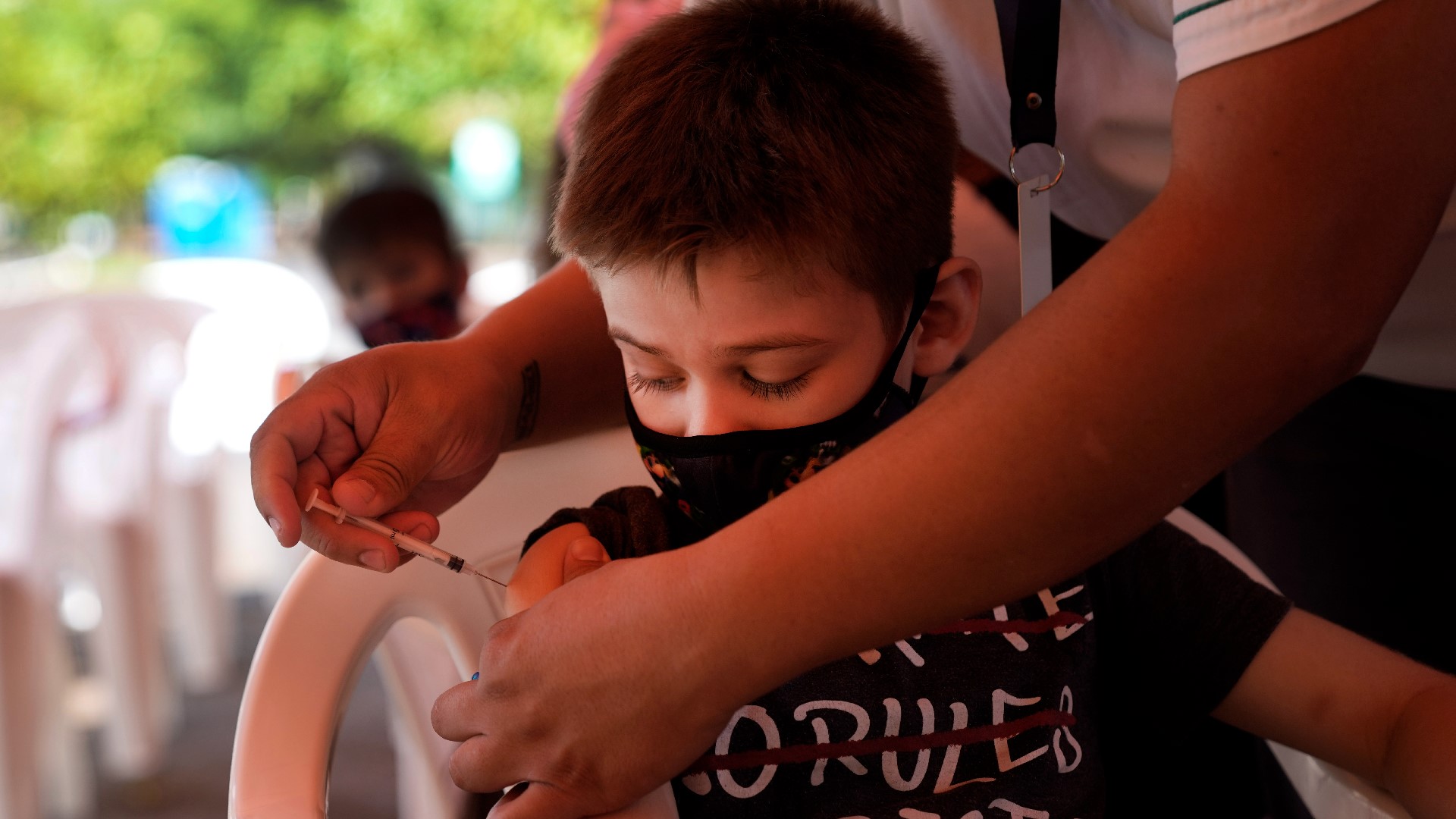YORK, Pa. — It's that time of year: seasonal illnesses are waking from their summer hibernation.
Whooping cough (pertussis), COVID-19 and more are expected to see a resurgence this winter.
Kids are already at an increased risk of catching an illness, so vaccines are important to help mitigate the risk.
Dr. Vinitha Moopen with WellSpan Health says there's an easy bottom line to remember when it comes to childhood vaccines.
"The most important thing is to get vaccinated when your child is able to get these vaccines," Dr. Moopen said.
The age range for each vaccine will vary, but the whooping cough vaccine starts at 2 months old. Kids receive additional doses at 4 and 6 months and boosters once they hit 15 months and again before starting kindergarten.
This vaccine is especially important to get as soon as your child is able, because the danger of the disease starts very young. Dr. Moopen says children are at the most risk before they turn 2 months old.
"They don't even present with a cough, they present as they just stop breathing," she said. "And that's very dangerous."
Children's lack of immunity and elevated risk of illness is exactly why people say "don't kiss the baby"--especially this time of year.
Dr. Moopen says doctors are seeing resurgences of illnesses that were once under control because childhood vaccination rates have declined.
"It's just really important to get these vaccines, because it's not only the protection for the child themselves, but it's also for the community where you have the more people vaccinated, the more herd immunity you have, and the less chance of these illnesses coming into your communities," the physician said.
Dr. Moopen reminds parents that it is perfectly acceptable to move a vaccine up to two weeks past its originally scheduled date if the child is sick at the time they were meant to get the shot. Vaccine timelines allow for some flexibility for the kid to receive it once they are feeling better.
She also recommends keeping a copy of a child's vaccine record on hand for easy reference when scheduling or in case the kid would see a new doctor. Electronic records can be a convenient option.
And when it comes to fighting seasonal illnesses...
"Just get those vaccines that you're able to get, as always if you're sick stay home, wash your hands and be careful if you're in large spaces if you do see people who are not feeling well," she advised.
Dr. Moopen says concerned parents can always talk to their doctors, nurses and pediatricians about any worries they may have for their child. If your kid needs to be seen by a doctor, call the office of your choice or click here to make an appointment with WellSpan.

